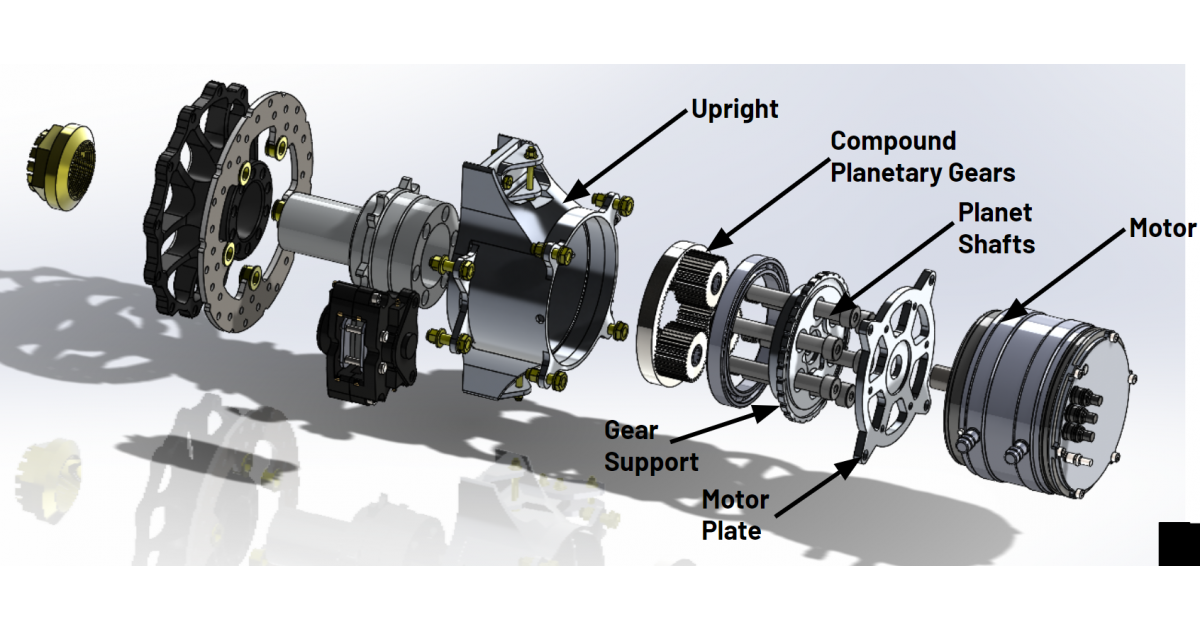Unveiling The Hub: Your Central Point For Connectivity And Innovation
A hub serves as the heartbeat of connectivity, acting as a central point where data, resources, and ideas converge to create something extraordinary. Whether it’s a digital platform, a physical location, or an organizational structure, the concept of a hub is integral to modern systems. Imagine a world where everything operates in isolation – productivity would plummet, and innovation would stagnate. This is why hubs have become essential in driving progress across various industries, from technology and transportation to education and healthcare.
In today’s interconnected world, understanding the role of a hub is more important than ever. It’s not just about being a central location; it’s about fostering collaboration, enhancing efficiency, and enabling seamless communication. Businesses, governments, and communities rely on hubs to streamline operations, reduce costs, and improve outcomes. As we delve deeper into this topic, you’ll discover how hubs are transforming industries, empowering individuals, and shaping the future of connectivity.
This article aims to provide a comprehensive overview of what a hub truly represents, exploring its applications, benefits, and potential challenges. By the end, you’ll have a clearer understanding of why hubs are indispensable in today’s fast-paced environment and how they can be leveraged to achieve greater success. Let’s embark on this journey together and uncover the power of a well-designed hub.
Read also:Exploring Somali Wasmo Telegram 2025 A Comprehensive Guide To The Latest Trends
Table of Contents
- What Exactly is a Hub?
- Why Are Hubs Important in Modern Systems?
- How Can a Hub Drive Business Growth?
- Is Your Organization Ready to Implement a Hub?
- Types of Hubs
- Key Characteristics of a Successful Hub
- Benefits of Using a Hub
- Challenges in Establishing an Effective Hub
- Case Studies: Real-World Examples of Hubs in Action
- Future Trends for Hubs
What Exactly is a Hub?
A hub, in its simplest form, is a central point that facilitates connections between multiple entities. Think of it as the spoke-and-wheel model, where the hub acts as the center, and all other components radiate outward. This concept is widely applied in various fields, including logistics, IT infrastructure, and social networks. For instance, an airport hub connects flights from different destinations, while a data hub manages information flow across an organization.
But what makes a hub truly effective? It’s the ability to streamline processes, enhance communication, and provide a unified platform for interaction. In today’s digital age, hubs are becoming increasingly sophisticated, leveraging technologies like artificial intelligence, cloud computing, and the Internet of Things (IoT) to deliver unparalleled performance.
Why Are Hubs Important in Modern Systems?
In an era defined by globalization and technological advancement, hubs play a crucial role in bridging gaps and ensuring smooth operations. They act as the backbone of complex systems, enabling seamless integration of resources and facilitating collaboration among diverse stakeholders. Whether it’s a supply chain hub optimizing delivery routes or a knowledge hub disseminating critical information, the importance of a well-functioning hub cannot be overstated.
Moreover, hubs contribute significantly to cost savings and efficiency improvements. By centralizing operations, organizations can eliminate redundancies, reduce overheads, and allocate resources more effectively. This not only boosts profitability but also enhances customer satisfaction by delivering faster and more reliable services.
How Can a Hub Drive Business Growth?
Businesses across industries are increasingly adopting hub-based models to drive growth and innovation. A hub allows companies to tap into new markets, expand their reach, and enhance their competitive edge. For example, a retail hub can connect suppliers, distributors, and customers, creating a seamless ecosystem that benefits all parties involved.
In addition, hubs foster collaboration and knowledge sharing, enabling businesses to leverage collective expertise and develop cutting-edge solutions. This collaborative approach is particularly valuable in fast-evolving industries where staying ahead of the curve is essential for success.
Read also:Exploring The World Of Hdhub4u Hair Your Ultimate Guide
Is Your Organization Ready to Implement a Hub?
Implementing a hub requires careful planning and strategic execution. Organizations must assess their current infrastructure, identify areas for improvement, and determine the type of hub that best suits their needs. Whether it’s a data hub, logistics hub, or customer service hub, the key is to align the hub’s capabilities with the organization’s goals and objectives.
Here are some factors to consider before implementing a hub:
- Resource availability: Do you have the necessary tools, technology, and personnel to support a hub?
- Scalability: Can the hub grow and adapt to changing demands?
- Integration: How well will the hub integrate with existing systems and processes?
- Cost-effectiveness: Will the benefits outweigh the initial investment?
Types of Hubs
Hubs come in various forms, each tailored to specific needs and applications. Here’s a closer look at some common types of hubs:
- Data Hub: Centralizes information management and analysis, enabling organizations to make data-driven decisions.
- Logistics Hub: Optimizes supply chain operations by coordinating transportation, warehousing, and distribution.
- Knowledge Hub: Facilitates the exchange of information and expertise, promoting learning and innovation.
- Community Hub: Serves as a gathering place for individuals to connect, collaborate, and share resources.
Key Characteristics of a Successful Hub
To ensure the success of a hub, it must possess certain key characteristics:
- Connectivity: The ability to seamlessly connect with various entities and systems.
- Flexibility: Adaptability to changing conditions and evolving requirements.
- Scalability: Capacity to grow and handle increased loads without compromising performance.
- Security: Robust measures to protect sensitive data and maintain privacy.
Benefits of Using a Hub
The advantages of using a hub extend beyond operational efficiency. Hubs empower organizations to achieve greater productivity, enhance customer experiences, and drive innovation. By centralizing resources and streamlining processes, hubs eliminate bottlenecks and reduce inefficiencies, leading to significant cost savings.
Furthermore, hubs foster collaboration and knowledge sharing, enabling organizations to harness collective intelligence and develop innovative solutions. This collaborative approach is particularly valuable in today’s fast-paced business environment, where staying ahead of the competition requires continuous improvement and adaptation.
Challenges in Establishing an Effective Hub
While the benefits of a hub are undeniable, establishing an effective hub comes with its own set of challenges. Organizations must address issues such as data security, interoperability, and resource allocation to ensure the hub functions optimally. Additionally, resistance to change from stakeholders and lack of technical expertise can hinder the successful implementation of a hub.
Overcoming these challenges requires a proactive approach, involving thorough planning, stakeholder engagement, and continuous monitoring. By addressing potential obstacles early on, organizations can ensure the smooth operation of their hub and maximize its benefits.
Case Studies: Real-World Examples of Hubs in Action
Several organizations have successfully implemented hub-based models to achieve remarkable results. For instance, Amazon’s fulfillment centers act as logistics hubs, enabling the company to deliver products quickly and efficiently to customers worldwide. Similarly, Google’s data hubs process vast amounts of information, powering its search engine and other services.
Another notable example is the MIT Knowledge Hub, which connects researchers, students, and industry experts to foster collaboration and drive innovation. These real-world examples demonstrate the transformative power of hubs in shaping industries and enhancing outcomes.
Future Trends for Hubs
As technology continues to evolve, hubs are expected to become even more sophisticated and capable. Emerging trends such as blockchain, edge computing, and quantum computing are likely to revolutionize the way hubs operate, offering unprecedented levels of security, speed, and efficiency.
In addition, the growing emphasis on sustainability and environmental responsibility will drive the development of eco-friendly hubs that minimize resource consumption and reduce carbon footprints. These advancements will not only enhance the functionality of hubs but also contribute to a more sustainable future.
Can Hubs Be the Solution to Global Challenges?
With their ability to connect, collaborate, and innovate, hubs hold immense potential in addressing global challenges such as climate change, poverty, and healthcare disparities. By bringing together diverse stakeholders and leveraging collective expertise, hubs can develop innovative solutions to these pressing issues.
For instance, a global healthcare hub could facilitate the exchange of medical knowledge and resources, enabling better access to healthcare services for underserved populations. Similarly, a renewable energy hub could drive the adoption of sustainable practices and technologies, contributing to a cleaner and greener planet.
In conclusion, hubs are more than just central points of connectivity; they are catalysts for progress and innovation. By understanding their role and leveraging their capabilities, organizations and communities can unlock new opportunities for growth and success. As we move forward into an increasingly interconnected world, the importance of hubs will only continue to grow, shaping the future of connectivity and collaboration.
Article Recommendations


